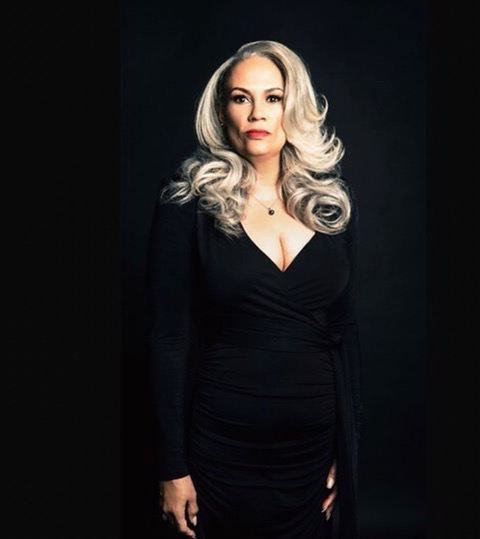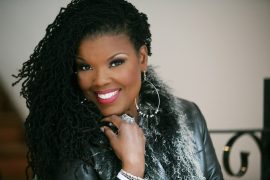Rae Lewis-Thornton is an Emmy Award-winning AIDS activist who rose to national acclaim when she told her story of living with AIDS in a cover story for Essence Magazine in December 1994. She has lived with HIV for 27 years and AIDS for 19 years. Rae travels the country speaking and challenging stereotypes and myths about HIV/AIDS.
She is an ordained minister and earned a Master of Divinity Degree from McCormick Theological Seminary and is currently working on her Ph.D. in Church History. Rae has been featured on Nightline, Dateline NBC, BET, and The Oprah Winfrey Show, as well as in countless magazines and newspapers, including Emerge, Glamour, O, the Oprah Winfrey Magazine, Jet, Ebony, The Washington Post, and the Chicago Tribune, to name a few. In addition, she received an Emmy Award for her television series, Living with AIDS, a first-person chronicle on WBBM-CBS in Chicago, IL.
In her latest memoir “Unprotected“, she tells her story of rejection, violence, and sexual molestation and shares with N’DIGO how it shaped the trajectory of her life.
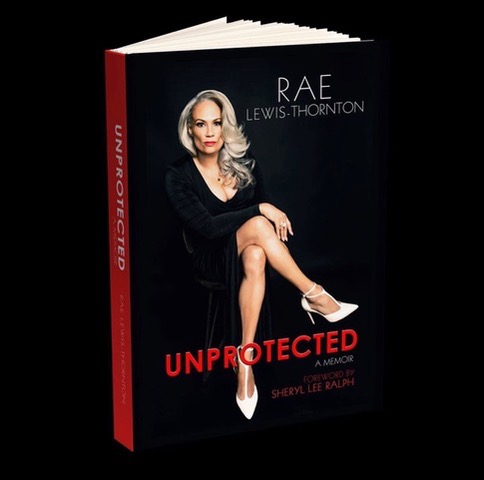
N’DIGO: Why, at this time, are you writing a memoir?
Rae Lewis Thompson: It was time. I am turning 60 years old, and I have lived with HIV for 38 years. I was on the cover of Essence Magazine 28 years ago. It was time to let go and tell my whole story to the universe. I had a book deal some 15 years ago, and the publisher and I could not come to terms. I could not emotionally get to that place. Something happened almost four years ago, I picked up the old manuscript, and I rewrote a chapter. It was in my spirit to rewrite the book.
I did a “go fund me“ fundraiser for a writing retreat. A girlfriend gave me a flight ticket to Bali, and I went for twelve days. I printed out the old book and went through an edit to find a starting place. I reconstructed the book. I determined where I wanted to go. Initially, the story was about how I had a lousy life, messed around, and got HIV. That was a narrow way to look at my level. It’s easy to publish a book about a little Black girl who had had a lousy life and how the trauma set the trajectory of my life.
Tell N’DIGO about your new book, Unprotected: A Memoir.
It began when I was six years old, and you will follow my life. I was living in trauma and how it affected me, but how I never gave up. It’s a story about how I lived in a house that was so unprotected that I was sexually, emotionally, and physically abused.
My parents were heroin addicts. My paternal grandfather took me from them before I was three. A few years later, my father was killed by a gunshot in his head. My grandfather died when I was six, and his wife kept me and raised me. No one else wanted me. My mother was living the life of a heroin addict.
What was your positive motivation?
As a little girl, I kept hoping and praying when I was about 10. I kept hoping for things to turn around. I hoped that one day my mother would love me. Her neglect opens a space for others to abuse me. I was hoping for something to make it better one day. God put buffers in my life. People came into my life and provided me with space away from the trauma.
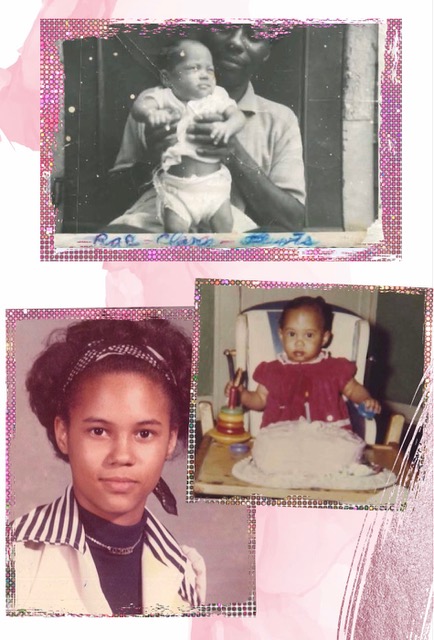
What happened to you as a teen?
As a young girl, the woman I called mama met a man who had seven children, and so we had a new family, and we lived together for five years. It was a common-law marriage. Afterward, they broke up. My mama and I moved to Evanston, and she moved in with a new man, and I had a new family. They married.
Moving to Evanston was one of the best things that happened to me. It was a positive outcome. I attended Shute Middle School, entering the seventh grade and reading at a fifth-grade reading level. I had a tutor who caught me up on my reading, and I was in a new space. I was reading books. My teacher was. Dr. Lorraine Morton, who later became the Mayor of Evanston. She was an angel and instilled in me that I could be anything.
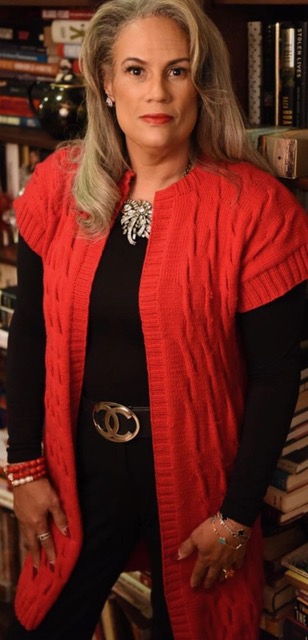
What else influenced you?
I attended Second Baptist Church alone in Evanston, where the late Rev. Dr. Hyzel B. Taylor was the minister. Attending the culturally significant church, I was exposed to doctors, educators, and lawyers and saw dynamic family relationships. And with that exposure, I began to see more than I had ever seen in my entire life.
I was broken; I thought something was wrong with me. Mama called me “Red Bitch, White Bitch.” I didn’t understand why I was called those names. I didn’t have a name for sex, but I knew touching was being fast. Being fast would get me a beating. My stepbrother started molesting me for a year, starting when I was ten years old. My mom’s half-sister molested me too. All I could think was that something was wrong with me. I was locked into a “secret.”
What happens when you get to high school?
I went to Evanston Township with some educational deficits. I was an “okay” student. I am now dealing with my mother’s new husband, who made my life uncomfortable. He played mind games with me. It was my word against him.
When do you leave home?
In my senior year of high school, my stepfather packed his clothes and left, telling my mama that he didn’t want to be around her “bitch ass daughter” anymore. Then I got put out because I came home 16 minutes after the curfew. So I lived on my own with my girlfriend for a while in Chicago, and we shared an apartment.
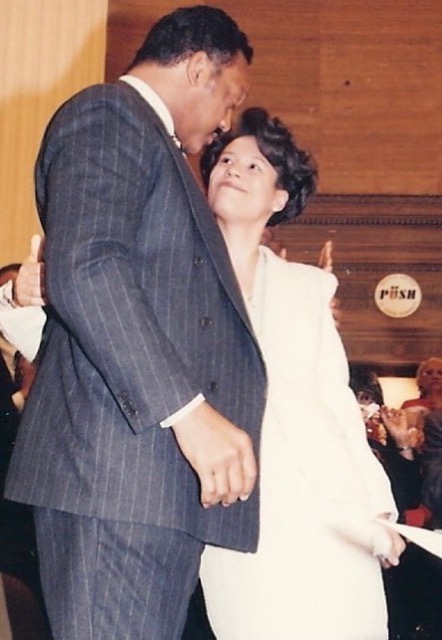
Did you go to college?
I attended college in Pine Bluff, Arkansas and then transferred to Southern Illinois University in Carbondale, IL. I didn’t do well in school, but I started organizing with the Black Students Organization. I was collecting absentee ballots for the election of Harold Washington and we brought seven busloads of students to Operation PUSH on election day to get out the vote for Harold. Suddenly I was in charge of two thousand students. The late, Rev. Tyrone Crider offered me an internship. He was the national youth director and the director of PUSH Excel. I became the deputy national youth director for the Jesse Jackson Presidential Campaign. I moved to Washington and then back to Chicago for the 1988 campaign.
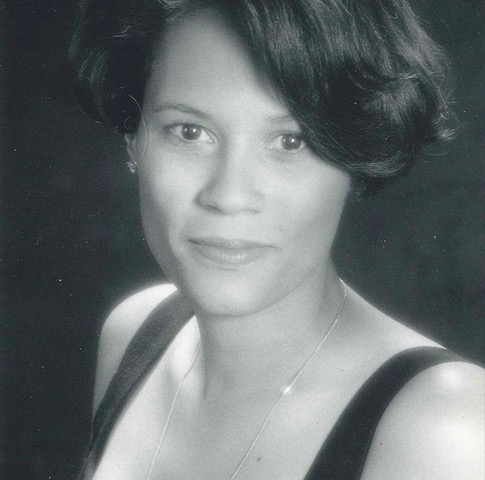
When were you diagnosed with HIV?
I was diagnosed in 1987 while in Washington after donating blood. I was practicing unprotected sex. We thought it was a white male gay disease at the time. Because I lived in D.C, I understood some men were having sex with men and women. I came to Chicago for the 1988 presidential campaign. I knew I was affected. And I began to live in the “secret” of HIV. I went to work for Dr. Leon Finney. I went back to school and graduated from Northeastern University, and I went to graduate school at the University of Illinois and then transitioned to AIDS. I worked on Carol Mosely Braun‘s campaign. I worked on political campaigns.
How did you live as a young woman with full-blown AIDS?
I got married, and I was becoming a public person with AIDS at that time. We were matched. I didn’t want to die alone, and I wanted someone to watch me die. He was committed to me as a caregiver. But I didn’t die. It was a complicated relationship and was fool’s gold as a marriage. We looked great, but it was not worth it. We were living off of my speaking engagements. We argued a lot. I eventually had to get an order of protection. That was 17 years ago. I got a divorce, and I never looked back.
I went to seminary school and graduated from McCormick Divinity, and Rev. Clay Evans licensed me.
Today Rae Louis Thornton continues to travel and lecture and educate on HIV, and God is shifting her to talk about trauma.


